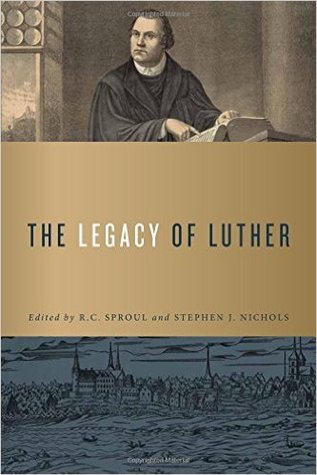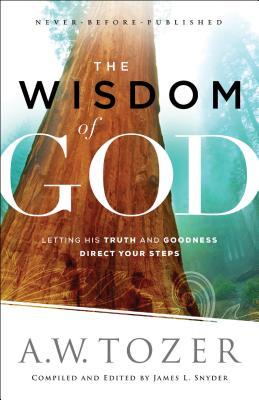Embodied Hope: A Theological Meditation on Pain and Suffering. Kelly M. Kapic. 2017. IVP. 197 pages. [Source: Review copy]
First sentence: This book will make no attempt to defend God. I will not try to justify
God or explain away the physical suffering in this world. Instead, I
wrestle with nagging questions about our lives, our purpose, and our
struggles. How should we live in the midst of this pain-soaked world?
How do we relate to the God whose world this is? If you are looking for a
book that boasts triumphantly of conquest over a great enemy or gives a
detached philosophical analysis that neatly solves an absorbing
problem, this isn’t it. Instead, this book aims to invites you into a
larger conversation, a conversation greater than my family, and a
struggle bigger than your pain and doubt. For while our pain, or the
suffering of those we love, may cause us to feel isolated, these
challenges remind us that we are actually part of the much larger stream
of humanity.
Premise/plot: Embodied Hope is a Christian book about pain--chronic physical pain to be exact. It is divided into three parts: "The Struggle," "The Strangeness of God," and "Life Together."
The premise is simple: "Physical suffering often affects how we relate to God and others….The condition of our bodies does influence how we understand God and his ways….Pain in our body often influences how we relate to others." Kapic writes, "We must not pit the body against the spirit, the mind against the heart,
the individual against the community. For our struggle is not
ultimately with a single side of suffering but with how it affects us in
our totality: from our relationships to our faith, from our bodies to
our hope, from our mourning to our love."
Kapic examines the subject of pain in the world in this world. How pain impacts the individual, the family unit, the church community, and to a very small extent society itself. It isn't necessarily a theological book on "the problem of evil" vs. "the goodness of God." I don't think it would be a stretch to say that Kapic seeks to avoid the general and abstract in favor of the intimate and personal. In fact, he writes, "Rightly understood, doing theology is more often like farming than it is
like stacking doctrinal bricks. Theology is lived; it is not
regimentally constructed….Only when we begin to see that theology is not merely about repeating
back answers but instead more like caring for a garden can we care well
for others….There is a world of difference between reading a book about caring for
people and actually caring for people. To theologize well, we need to
love well."
The truth of the matter is that every person is unique. Every person has his or her own way of dealing with the pain, of coping with the pain, of living with the pain. And as much as he tries not to make generalizations, I think a few slip in.
In the first part, he explores "the struggle" of living with pain and the theological implications. He assumes that pain leads most to have "hard thoughts" about God. He assumes that most pain sufferers have false notions of God. For example, they see him as angry, distant, cruel, harsh; someone who enjoys watching people suffer. Pain sufferers might conclude that God isn't good and merciful and kind.
Kapic writes, "How does God look upon us in our weakness, even in our sin? Is God
really angry or wrathful with us, his children? His bride? What picture
of God is really warranted by the Scriptures? How do these passages like
Zephaniah 3:17 and Isaiah 62:5 intersect our own experience? How can we
then deal with the “hard thoughts” that tempt us, especially in our
suffering? How do we develop a profound and affectionate trust of God
rather than a sense of alienation? Our journey is to learn why such hard
thoughts don’t reflect the triune God. Our hope is to learn to hear him
singing over us, to trust his presence in the middle of the pain. Some
will immediately object that this is wishful thinking based on a few
obscure verses here and there. However, we will see that we are not
talking about a few scattered biblical texts but are diving into the
heart of the gospel, the heart of the good news discovered in Messiah.
Only here will we unquestionably discover the very heart of God. To understand God and his relationship to our pain, we will need to
examine the case of Jesus of Nazareth, a man who walked the dusty roads
of Galilee over two thousand years ago. Only by listening to his words
and by following the movement of his life, death, resurrection, and
ascension might our very human struggle be seen in different light.
Because he was and is God’s revelation of himself to us, it only makes
sense to start there. In this endeavor it is to be hoped that our view
of the God of heaven and earth will deepen beyond our current
understanding. But to see Jesus clearly we need to stop defending our
preconceived notions of who God is."
In the second part, the focus shifts to the life, death, and resurrection of Jesus Christ our Lord and Savior.
In the third part, the focus shifts to the church, to the community of believers. How can the church of God best care for the people of God? How can the church reach out, include, better understand those living and struggling with physical pain and suffering?
My thoughts: I found the tenth chapter the most thought-provoking. In this chapter, he discusses the importance of confessing our sins to one another. This isn't a subject that is addressed often in contemporary theology. So he gave me a lot to think about!
I wanted to read this book because I suffer from chronic pain. The philosophical statement, "I think therefore I am," has been for me "I hurt, therefore I am." My mom also suffers from chronic pain, and as a result I think I've always felt understood and supported. The book assumes that if you're a pain sufferer that there's a good chance you struggle with loving God and seeing him as GOOD. The book assumes that physical pain leads you to keep God at a distance. I talked this over with my Mom for her perspective, and we both agreed that we could not relate to that reaction or response. (I knew my opinion. I wanted hers too!)
Pain, for me, has always kept the lines of communication with God OPEN. It keeps me dependent, needy, desperate, humble, weak. Pain has me crying out for more of God's presence. Pain has filled me with an undeniable hope and a strong desire for heaven. The Word of God sustains me for it is full of God's promises.
His focus on community was very thought-provoking as I mentioned before. Vulnerability is not easy for me. It is hard for me to believe that others care how I'm feeling, how I'm doing in any real way. So much food for thought is included in this one.
Favorite quotes:
- "Laments rise to the heavens as a strange combination of complaint,
grief, questions, confusion, desire for rescue, and expectation of
divine faithfulness. Our great hope is that lament is not all there is
to human experience. Nevertheless, any who have truly lived and loved
must come to believe that lament is at least part of our existence. Only
the idealistic and unloving belittle tears and sadness. Only the coolly
detached never raise a complaint about the condition of things,
including our broken bodies. If we never lament, then it is legitimate
to wonder if we have ever truly loved."
- "To have a healthy emotional, spiritual, and mental life, we must be
honest with ourselves. One truth about our lives is that we are broken;
we inevitably encounter our own suffering and that of others, and
eventually we die. How does our Lord teach us to respond to this? He
teaches us hope, and within that hope we use lament to speak to God of
the painful delay of peace. All laments ultimately go to God, with whom
we wrestle and rest."
- "If we fully and completely felt the lament of this broken and sinful
world, it would crush any and all of us. We know that because it crushed
Jesus. But thanks be to God, this Jesus also rose from the depths of
despair and from the grave. He rose and lives even now. For now, let us
simply appreciate that we are allowed, even invited, to lament. Yet we
must take those laments to God since they will not crush him."
- "To be a truly human story—which is the only way we should understand the
Christian story—means it must confess both grief and hope, sin and
faithfulness, struggle and promise. We must learn to be truly honest
with ourselves, with others, and even with God. Our theology requires
it. Our stories demand it. Only with this kind of confession and lament
are we finally in a position to capture a glimpse of the God who is,
rather than the god we imagine him to be. Only then can we discover the
scandalous grace of God so often spoken about, but so seldom truly
savored."
- "The church has always believed that we do not testify properly to God if
we lie about the state of the world. Sin, death, and devilish activity
are all around us. Anguish, heartbreak, and troubled relationships are
everywhere. This is the world we live in. And it is in this world that
we must learn to live. Consequently, Christians are to live before God
in this world by honestly facing the reality of pain’s presence and all
that it represents. We neither deny nor glorify it, but we must face it
nevertheless, for this is the world we inhabit."
- "So how are we to live when our present moment includes a constant guest
called pain? How are we to embrace the present moment, not just in light
of the possibility of some future death but as we live in the midst of
very real suffering? These questions are not easy. But learning to ask
questions, to wrestle honestly with God amid our laments, can actually
serve as a way to live faithfully before and with God in the present,
even amid our struggle with pain."
- "God concerns himself for us in our sin and pain, neither because it was
required of him nor because he had personally done anything wrong, but
because he loves us and is the only one who could restore what was lost,
repay the debt, free the slave, and heal the sick."
- "So if faith and hope are to mean anything to us in our suffering, they
must come to us in the context of love, or, to put it another way, faith
and hope are only properly applied with love: a love accomplished and
given through the person and work of Christ."
- "Love is what we are called to, and love is what we should never try to
escape from. But in this fallen world, such love also brings with it
real suffering."
- "We experience divine love most concretely when we receive and give it to
others. God expresses his love and extends his comfort through his
people."
- "When faith and hope grow out of love, they are like food for the hungry
and medicine for the sick. Thus we need faith, hope, and love, but
without love we lose all three."
- "Simply facing pain everyday does not free us from sin. Nor does it make
us more sinful. But what it does tend to do is heighten our awareness of
sin and brokenness in the world and in our own life. In a
counterintuitive way, those who are hurting can also help those who are
relatively free from pain: they remind us that the world—including our
body—is not as it should be, and it is this which suffering and the
pains of death never let us forget. But with these sisters and brothers
we can also see the promise of shalom and hope, a promise not yet full
realized. To understand these dynamics we must learn why those who
suffer often have a heightened awareness of the reality of sin, not only
in themselves but in the world."
- "I believe the act of confession, and in particular confession to a
fellow believer, is crucial to sustaining the struggling saint. As we
will soon see, for those facing physical suffering—where they have a
heightened sense of their own sin—this act of confession becomes one of
the keys to life-giving faith amid the voices of condemnation. This is
not because they are greater sinners but because they sometimes have a
greater sensitivity to the presence of sin in their lives and this
world, and they sense their deep need for forgiveness and grace. We all
need these gifts of divine compassion and mercy, but our relative health
often masks the darker realities of our spiritual neediness."
- "To be forgiven, healed, cleansed, and restored to God requires that our
offenses, diseases, dirt, and alienation be obliterated and that we
experience the consequent forgiveness, healing, cleansing, and
restoration. This requires an honest reckoning. Confession before
others, therefore, to be of any use at all, requires that those others
are safe and trustworthy, and that we are open with them. Normally,
those who receive our confessions must have enough life and spiritual
experiences in line with what is confessed to serve us well."
- "We need to hear the gospel from others, from outside ourselves. The
power of the gospel preached personally to me from a faithful sister or
brother has a power that I cannot conjure for myself."
- "Confession before others can also help us disentangle our pain from
the idea of personal punishment. Here we can know forgiveness and grace
even in our pain (1 Jn 1:9). Here we can honestly affirm and confess the
brokenness of the world and the failures of our own hearts. In
confession, we are brought before Jesus, whom we encounter through our
brother and sister (Mt 18:20; 2 Cor 2:10). Looking into their eyes,
hearing their voice, and feeling their touch, we can receive Jesus’s
promise to us: “your sins are forgiven.”"
- "We may not be able to take away the physical pain, but we can point one
another to him who promises one day to completely heal us. For now we
cling to his promise of restoration, cling to him who has the ability
also to restore the body. He will make all things new (Rev 21:5). We
will be free from sin, pain, and tears (Is 65:19; Rev 21:4). We will be
free from isolation, selfcondemnation, darkness, fear and anger (cf. Is
35:10//51:11; Rev 21:22-27). We will be utterly free to love our Creator
and our neighbor. While we may not fully experience that freedom now,
we can help one another to experience genuine tastes of shalom even in
the present, even in our pain, even as we struggle with our sin."
- "Confession liberates us, not from physical pain but from shame and
condemnation. And here, the “healthy” can learn from the hurting, like
the blind teaching the Pharisees to see (cf. Jn 9:31–10:41)."
- "Witness holds an important place in the Christian tradition. These days
when someone hears about Christian witness, they almost inevitably think
about believers testifying of Christ to nonbelievers. That is what we
call evangelism. However, what is often forgotten is how important
giving witness or testimony can be within the Christian community,
especially in times of difficulty. This witness is always twofold:
acknowledging that our troubles are real and that God is unflinchingly
faithful."
- "We are called to have compassion, to come alongside others in their
pain, and to love them. This is risky. Almost inevitably you will—even
if only in some small way—suffer with them. However, in this shared
pilgrimage you will also discover afresh the grace and tenderness of
God."
© Becky Laney of
Operation Actually Read Bible
























